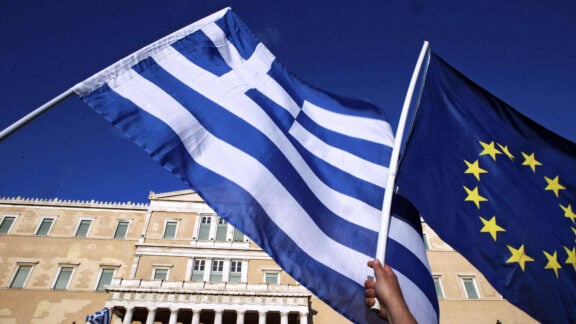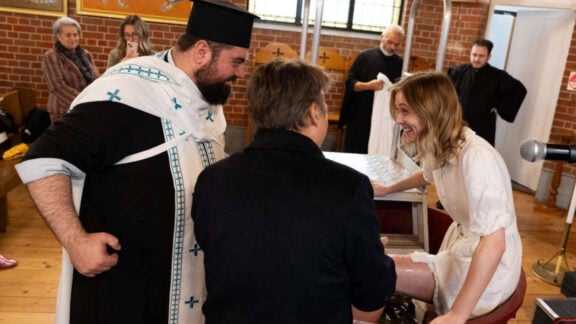Enlightenment Europeans would call complex political manoeuvrings, ”Byzantine”, it was a jibe meant for eastern Hellenism which they saw as backwardness. In sharp contrast to that criticism, the Ecumenical Patriarch Bartholomew of Constantinople, ended a seven-decade schism with the North Macedonian Orthodox Church.
Patriarch Bartholomew recognised the Church of North Macedonia as the “Church of
Ohrid.” At the same time, he excluded “the term ‘Macedonian’ and any other derivative of the word ‘Macedonia’.”
In mid May, Bartholomew welcomed “the hierarchy, clergy, and people of this Church under Archbishop Stefan.”
On May 10, Archbishop Stefan of Ohrid joined Patriarch Bartholomew in a co-liturgy at the Church of Saint George in the Phanari – the seat of the Ecumenical Greek Orthodox Church – and then visited the Theological School in Halki.
Bartholomew said, “we regret having to talk about ourselves, but it is necessary to reveal the truth.
Bartholomew in a communiqué said the recognition “heals the wound of the schism and pours oil and wine” into the wound of the Orthodox brothers and sisters there.”
He clarified that it was up to the Church of Serbia to settle the administrative issues between it and the Church in North Macedonia.
Addressing the Archbishop of Ohrid, Bartholomew stressed that “it is time to review the ecclesiology of self-sufficiency and misunderstood introversion.
He said that the terminology of Slavonic and Greek-speaking Orthodoxy is not a dilemma. And added that the Orthodox church is one. “We can’t afford to be petty. You know better than anyone how much stubborn obsessions cost”, Patriarch Bartholomew said.
He then called on the Archbishop of Ohrid to entrust the Mother Church” with the care of her.
In a response Archbishop of Ohrid Stefanos, said he entrusted his church to the “responsibility of the Mother Church for the good and the prosperity of the Orthodox family.”
In a communiqué, Archbishop Stefanos also thanked the Serbian Patriarchate for the resolution of the administrative issues after their recognition by the Ecumenical Patriarchate.
The Church of Serbia granted autocephaly to the Church of North Macedonia, and Archbishop Stefanos of Ohrid in an official document, which was recognised as a sign that the church was “worthy of being granted Autocephaly”.
The North Macedonian church’s recognition had been blocked by the Serbian Orthodox Church. North Macedonia’s president Stevo Pendarovski and prime minister Dimitar Kovačevski turned to the Ecumenical Patriarch Bartholomew in Constantinople (Istanbul), seeking his intervention to end the crisis. They requested the Patriarch grant autocephalic recognition to the church in North Macedonia.
Ecumenical Patriarch Bartholomew thanked the Prime Minister of North Macedonia for his presence at the Phanari.
Relations between North Macedonia and Greece have thawed since the resolution of the issues over nomenclature which have eased the way for the reconciliation of the two churches.
Prime Minister Kovačevski expressed his “warm thanks to the Ecumenical Patriarch and the Archbishop of Ohrid” and spoke of “a great and historic day.”
The Ukrainian Orthodox Church in Australia in March agreed to come under the stewardship of Archbishop Makarios, the Archbishop of Australia, and it is hoped by the Ecumenical Patriarchy in Constantinople that the Church of Ohrid will also be willing to come under the wing of the Orthodox Archdiocese of Australia.
It is unclear what the impact of the new friendliness between the Ecumenical Patriarch and the church in North Macedonia will have on Australia’s North Macedonian community.
The test will be if the Australian North Macedonian clergy and laity agree to change the name, from ‘Macedonian Orthodox Church,’ to the Church of Ohrid.
Clearly, Archbishop of Ohrid Stefan, and the Ecumenical Patriarch Bartholomew hope the rapprochement will find fertile ground among the Greek and North Macedonia diaspora communities.









